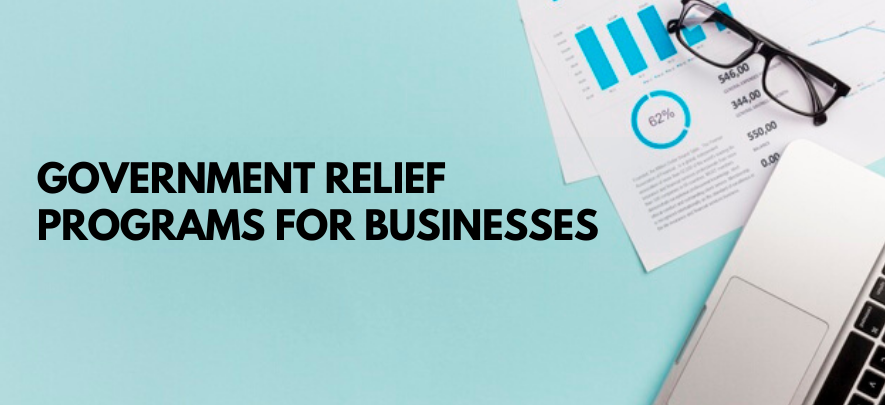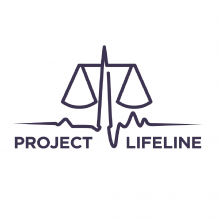5 government programs your business can avail of during the ECQ

Finance & Accounting
270 week ago — 8 min read
A downtime of seven weeks or more inevitably affects the viability of a business.
There are cost-saving adjustments, relief programs and financial solutions being extended by the government to help ease the impact of the enhanced community quarantine (ECQ). Here are some ways a business can get help in paying salaries, getting a breather from obligations, or just staying afloat:
1. Implement flexible work arrangements or field skeletal workforces.
During normal times, flexible work arrangements are like walking a tightrope. During the ECQ however, the Department of Labor and Employment (DOLE) encourages businesses to implement flexible work arrangements as a viable option. Flexible work arrangements involve temporary alternative arrangements resulting in reduced workhours, with a proportionate reduction of employees’ pay, which can be implemented as a result of the COVID-19 pandemic. Examples of flexible work arrangements are provided by DOLE Department Advisory No. 9, Series of 2020 are, as follows:
a) Reduction of work hours and/or workdays – where normal work hours or workdays are reduced;
b) Rotation of workers – where employees are rotated or alternatively provided work within the week; or
c) Forced leave – where employees are required to go on leave utilizing their leave credits, if any.
The DOLE further encourages employers and employees to arrive at other flexible work arrangements in order to balance the loss of income of employees but also maintain the viability of the employer’s business operations.
Also read: 6 tips for working from home without losing your marbles or compromising security
2. Avail of P5,000 to P8,000 wage subsidy for workers of small businesses under the DOF
For two months, 1.6 million businesses will be granted a wage subsidy under the DOF’s Small Business Wage Subsidy Program.
The SBWSP subsidy is P8,000 for eligible workers in the National Capital Region, Central Luzon and Calabarzon; P6,000 in Western Visayas, Central Visayas, Northern Mindanao, and Davao Region; P5,500 in Cordillera Administrative Region, Ilocos Region, and Cagayan Valley; and P5,000 in Mimaropa, Bicol Region, Eastern Visayas, Zamboanga Peninsula, Soccsksargen, Caraga Administrative Region, and Bangsamoro Autonomous Region in Muslim Mindanao.
If the worker already received the one-time P5,000 financial assistance under the COVID-19 Adjustment Measures Program (CAMP) program of the DOLE, he will only be eligible for a one-month wage subsidy under the SBWSP.
More details can be found in this link.
3. Apply for incentives for manufacturers and suppliers of essential products (Joint Memorandum Circular No. 2020-02, dated 28 March 2020)
If your business manufactures or supplies essential products like critical medicine, medical equipment and devices, personal protective equipment, surgical and laboratory equipment, you can apply with the DTI’s Board of Investments (BOI) for the following incentives:
- Contracts of the government for the availability of these goods shall be prioritized.
- The importation of these goods shall be exempt from import duties, taxes, and other fees regardless of the country of origin.
- The export requirement imposed by relevant Investment Promotion Agencies shall be suspended.
4. Invoke the grace periods under the Bayanihan to Heal as One Act (Memorandum Circular 20-12, dated 4 April 2020)
Aside from cash assistance, businesses forced to temporarily close could also use a breather from meeting their obligations in these extraordinary times, especially as MSMEs tend to lease space.
Section 4(aa) of Republic Act No. 11469, or the Bayanihan to Heal as One Act, mandated a minimum 30-day grace period in the payment of loans and rentals. Accordingly, the Department of Trade and Industry (DTI) issued Memorandum Circular No. 20-12, which requires a minimum of 30 calendar days as grace period on commercial rents falling due on MSMEs. No interests, penalties, fees and other charges would be incurred. MSMEs also have the benefit of paying rents that fell due during the ECQ in six (6) equal monthly installments from the date of lifting of the ECQ.
Violations may be brought before the DTI by filing a complaint in person or electronically. The Fair Trade and Enforcement Bureau would then issue the notice of violation requiring the lessor to explain. Violations are punishable by imprisonment of not less than two months, and/or a fine of not less than P10,000.
5. Take out a low-interest loan (Enterprise Rehabilitation Financing facility and Rehabilitation Support Program on Severe Events)
The DTI’s financing arm, the Small Business Corporation, launched a P1-billion Enterprise Rehabilitation Financing facility under the Pondo sa Pagbabago at Pag-asenso (Covid19 P3-ERF).
Micro enterprises with asset size of not more than P3 million may borrow from P10,000 to P200,000, while small enterprises with asset size of up to P10 million may borrow higher loans up to a maximum of P500,000.
The loans will come with the following conditions: they should be used to update loan amortizations for vehicle or other fixed asset loans, replace inventory for perishable stocks and replace working capital to restart the business.
They come at an interest rate of 0.5 percent per month on a discounted basis and provide a grace period “until such time that the economic crisis has abated.”
Another option is DBP’s (Development Bank of the Philippines) support to private enterprises (as well as public institutions) through its Rehabilitation Support Program on Severe Events (RESPONSE). The program provides a longer repayment period of up to 15 years inclusive of a three-year grace period, as well as concessional rates.
But, the DBP loan comes with the condition that borrowers must propose a project that will have “developmental impact to the affected communities that they serve.”
On top of these options from the government, UnionBank also offers fast and hassle-free business loans through SeekCap, an online lending marketplace built for SMEs. For more details, you can go here.
Need help in protecting your business during and beyond COVID-19? We’re here to listen and help.
Project Lifeline is a partnership between UnionBank, MOSVELDTT Law, Rappler, and Bounceback PH to provide legal and financial solutions for business owners. Just sign-up here and let us help you.
Also read: Project Lifeline: Free legal aid for MSMEs during ECQ
To explore business opportunities, link with me by clicking on the 'Invite' button on my eBiz Card.
Disclaimer: The views and opinions expressed in this article are those of the author and do not necessarily reflect the views, official policy or position of GlobalLinker.
View Project Lifeline 's profile
Most read this week
Trending










Comments
Share this content
Please login or Register to join the discussion